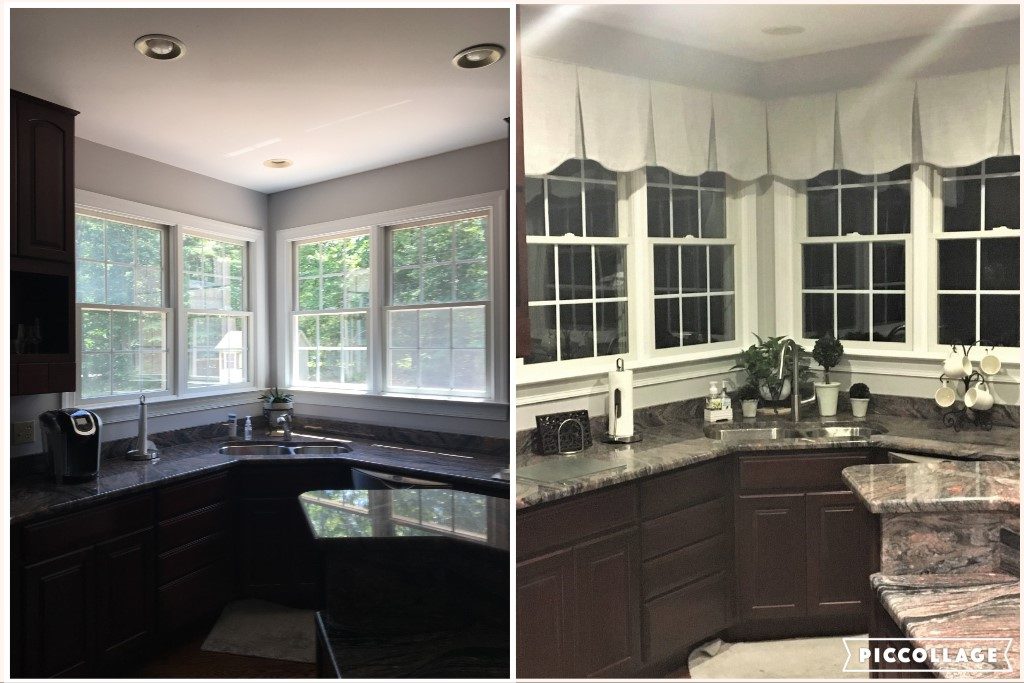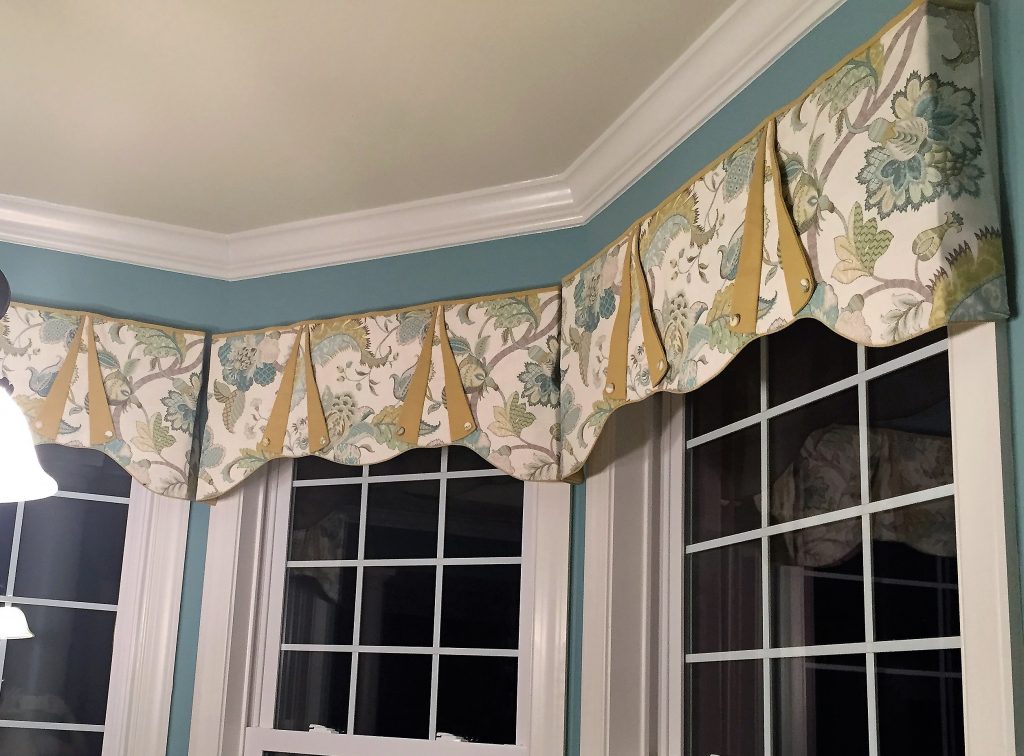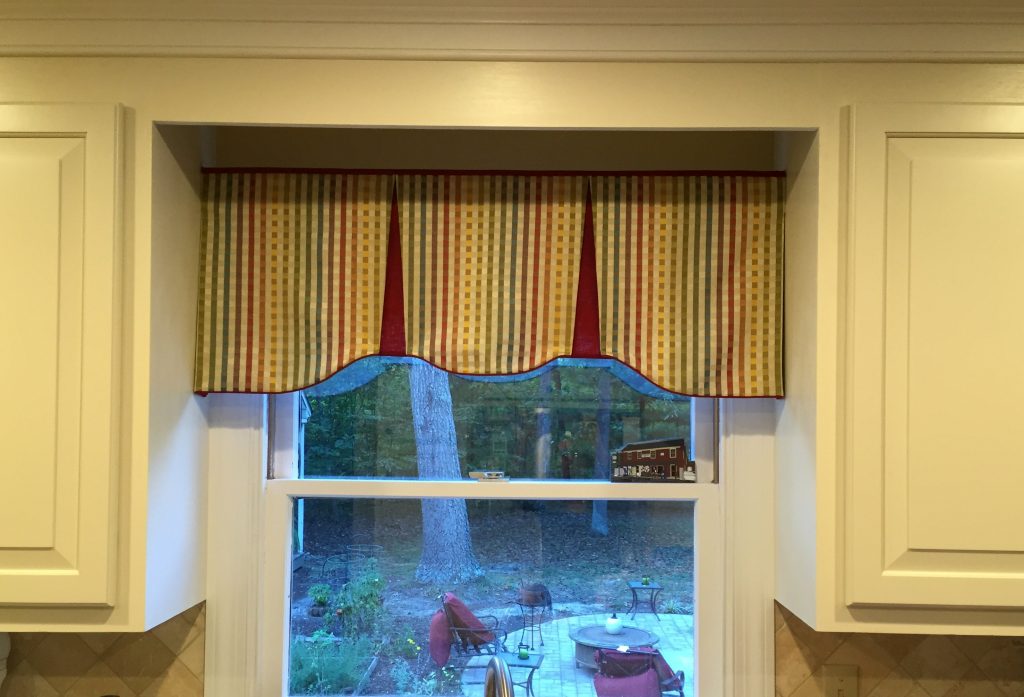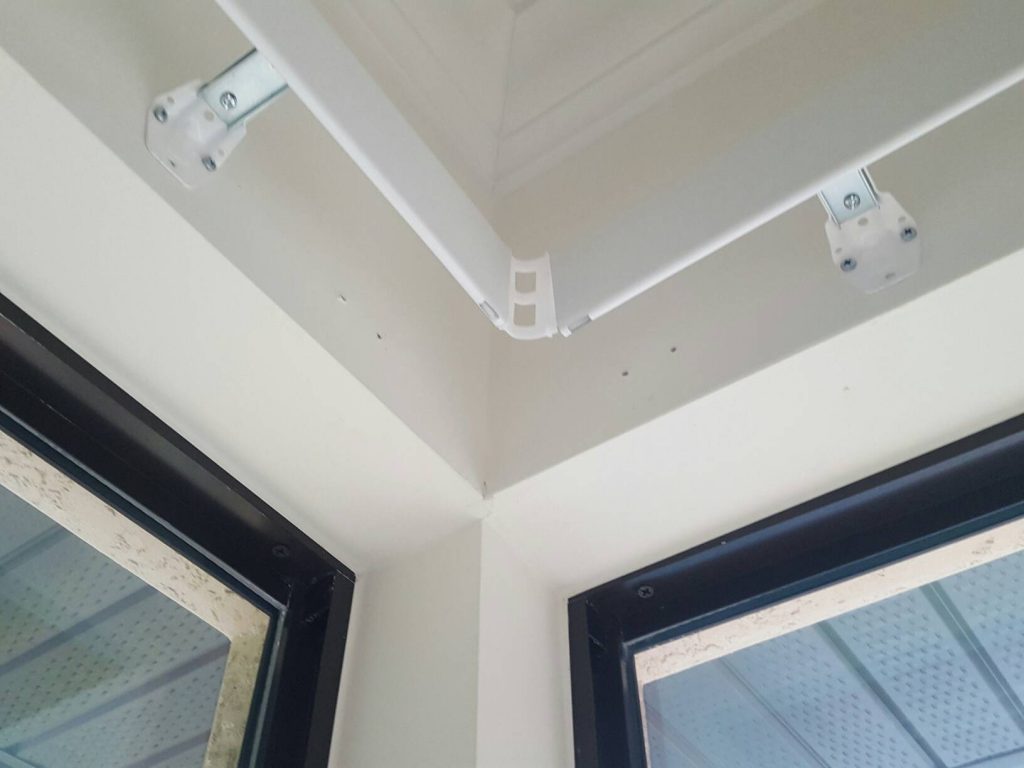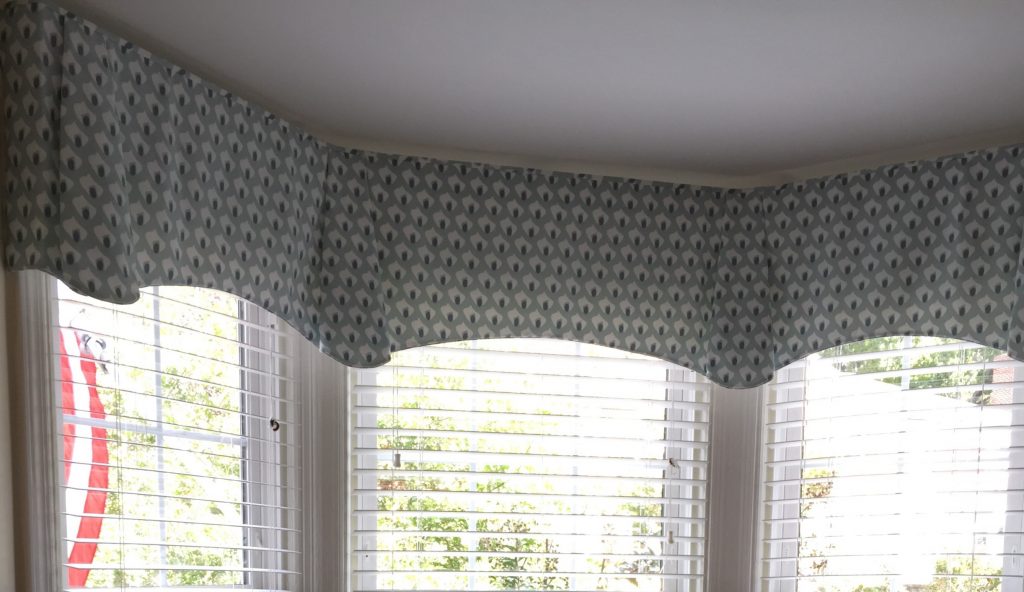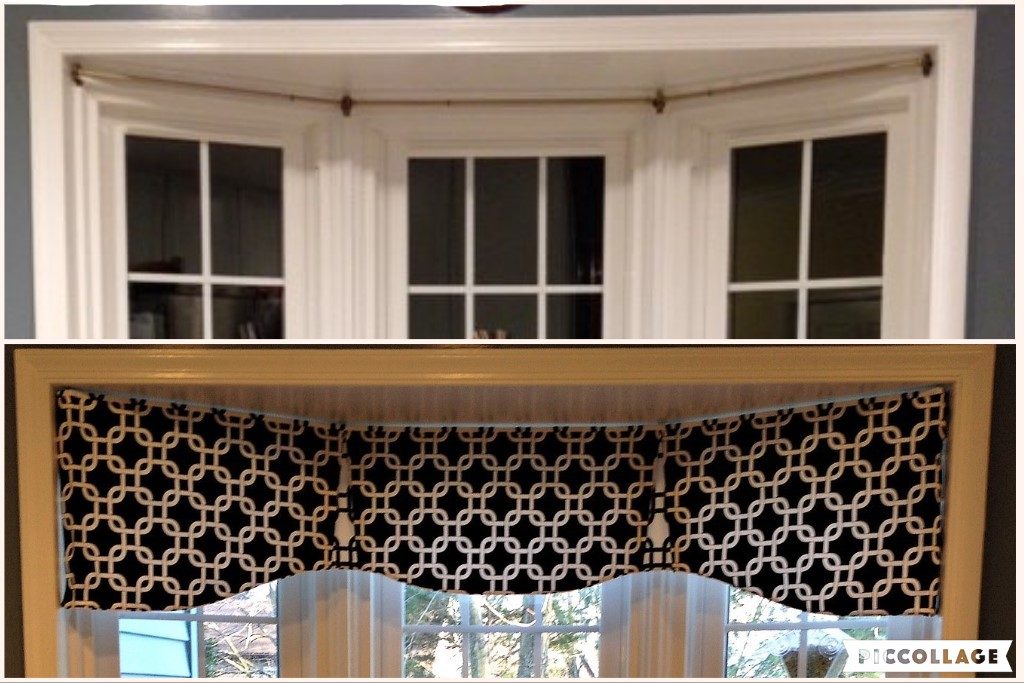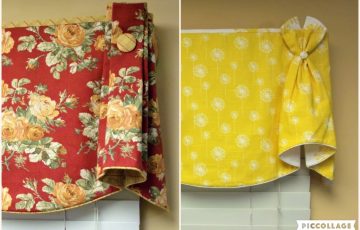Normally most of my customers use either 2½” or 4½” continental (flat) rods to install their Hidden Rod Pocket valances. These can also be called wide pocket rods or Dauphine rods. While I consider the 2½” rods to be the standard size, if you prefer to use, or have existing rods already installed that are the 4½” size, just let me know and I will adjust the size of the rod pocket to accommodate this.
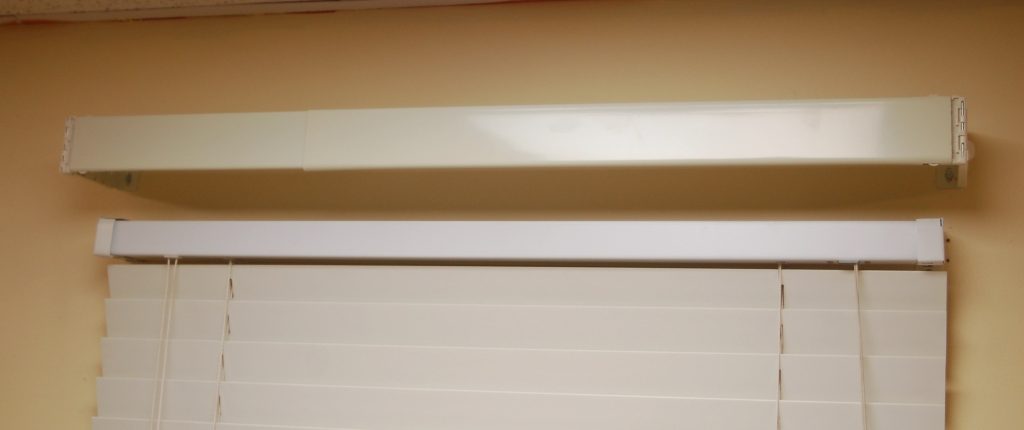 2 ½” continental curtain rod photo
2 ½” continental curtain rod photo
Occasionally I may recommend the 4½” rod size when planning for separate valances for a bay window that has windows fairly close together. That particular rod is available with a smaller projection of 2½” instead of the standard 3½”, and having a smaller projection may help to keep the rods from butting into each other.
These CASEY Hidden Rod Pocket valances were installed using the 4½” continental curtain rods with the 2½” projection because the customer preferred separate valances but the windows were close together.
Windows Between Cabinets
Sometimes I will need to construct valances for windows that are located in between 2 cabinets and there isn’t any space to install the continental rod brackets. If the space is less than 65” wide, then a Continental Spring Pressure rod can be used in between the cabinets since it doesn’t need to be mounted to the wall.
This EMILEE HRP valance was mounted using the continental spring pressure rod.
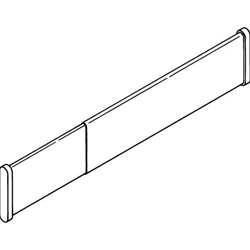
Corner and Bay Windows
Corner windows can be installed using 2 continental rods that are joined in the center using a Flexible corner connector.
You would also need to purchase extra supports to be used with the rods.
Valances for bay windows can also be constructed as 1 single valance and installed using a continental bay window curtain rod.
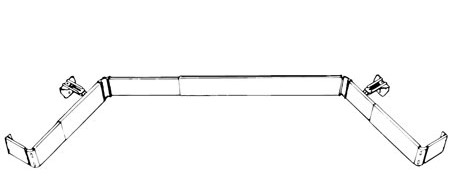 Diagram of a Continental Bay Window Rod
Diagram of a Continental Bay Window Rod
Although my Hidden Rod Pocket valances were originally designed to be used with continental rods, I have also had situations where my customers had existing rods that they wanted to use instead. So I have learned how to adapt the rod pocket, when necessary to work with different types of existing hardware when needed.
Example of rod pocket adaptation to use existing rods.
There are other rod pocket adaptations that can be done, so do not hesitate ask if there is anything that I can do to find a solution to a problem with particular your rod or window type. Afterall, necessity is the mother of invention, right?
